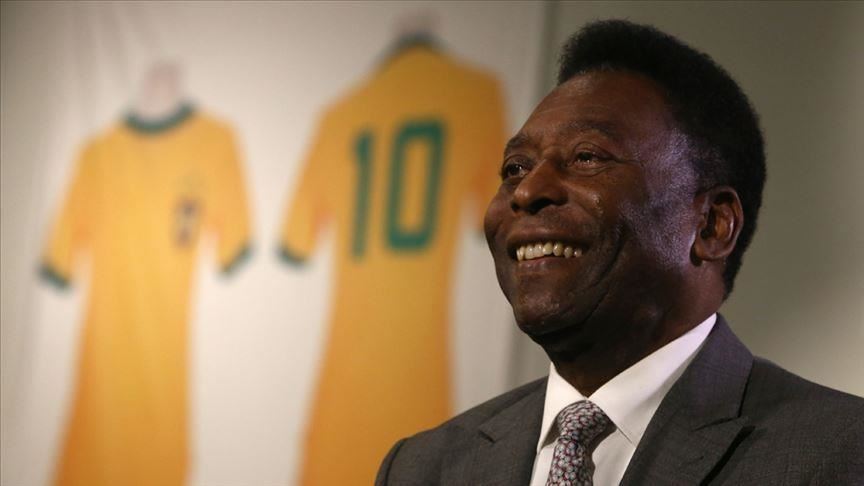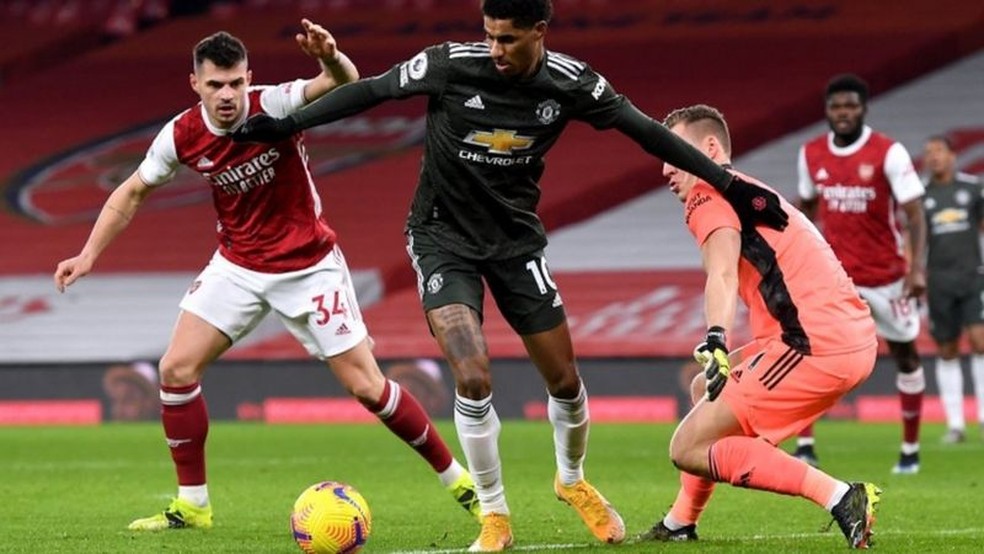
‘O Rei’ leaves details about his career in the documentary available from this Tuesday. Pelé reopens the debate on the best player in history.
This Tuesday Netflix premieres one of the first dates of 2021 that all football fans are waiting for. Talking about Pelé means much more than football, although this facet is not taken into account so much. The on-demand content platform launches a new documentary that will put the figure of this sports legend into perspective, based on what he did on the field to also explain the importance of his magic and his goals.
Edson Arantes do Nascimento will be portrayed in ‘Pelé’, a two-hour documentary in which the best moments of the footballer’s career will be seen. He himself will be in charge of guiding the viewer through the moments that marked his trajectory. Brazil, as a country and as a national team, will have the relevant role to understand all the circumstances that marked his career. The everlasting smile that is always imprinted on his image shines especially during the feature film.
The images shown in the documentary will once again raise the debate about who is the best player in the history of world football. Diego Armando Maradona, Alfredo Di Stéfano, Leo Messi, Cristiano Ronaldo … There are several candidates for that name, but there is no unanimity. In Brazil there is only one ‘God’ of football and it is him, a vision that shows itself perfectly. Devotion is also framed in the situation the country was experiencing.
The Brazilian, now 80 years old, will be the protagonist of a feature film that pays tribute to his figure and to one of the most colorful games that have ever been seen with Brazil in the 70s. It has been more than 44 years since He wears short officially, but his football has never been forgotten. In case he did it at some point, this documentary will continue to keep everything he did in the memory of this sport.
The controversies
Not only do we talk about football, since the life of the footballer will be the protagonist to understand how his career was forged. From the shoe shine boy to the living legend, he goes through everything that those years were also without being dressed in short. The humanitarian side of him will have room to understand that growth from poverty to glory never went to his head. Perhaps it did not make him a figure who could have given more of himself in the social sphere.
The extra sports will focus, among other things, on the sexual life of a soccer star, where Pelé confesses that he had relationships with several women and that, from those encounters, children were also born that he met over time. His appearances in the world of cinema are not mentioned, which, at the time, were very important. The ‘show business’ that was created around his figure cannot be compared to that of today’s stars, but, in his way, it also shone on the small and the big screen.
What he says about the political issue is also transcendental, since the player became a symbol in the middle of a military dictatorship in his country. You cannot compare the morbid that Maradona created with his life with the affability of Pelé. This is why the burden is created through his words. The few gestures that he had to detach himself from a system that exacerbated Brazil’s misery have generated some negative comments about his figure.
Some colleagues note that his silence when condemning the dictatorship made him legitimize it. “I helped my country more as a footballer than I would have done as a politician,” explains the footballer to defend himself. In addition to the advertisements for Viagra, in Brazil he remembers his words when he pressured the people to vote, in which he emphasized that the people do not know how to vote. But ‘O Rei’ spoke in the field.
The ball rolls
Ben Nicholas and David Tryhorn, the directors of this piece, place the transcendental in his ability to do magic with a soccer ball. Nobody has ever agreed when it comes to pointing out the number of goals he scored (in Brazil they count 1,284), but they all agree when it is necessary to point him out as a living history of the sport. The record with six Brazilian Serie A, two Libertadores Cups and two Intercontinental Cups does not say as much as what it actually meant.
But the important thing about that trajectory is what he did in the World Cups. ‘O Rei’ comments and relives the three that he won with Brazil in Sweden 1958, Chile 1962 and Mexico 1970. Everything will focus on the one with the most images, the last one. What the Jairzinho, Gerson, Tostao, Rivelino, Carlos Alberto and Pelé did is recorded in images and in testimonies from those who were with them. The team that changed football forever is a fundamental part of the documentary.
There are 12 years that are addressed of his career, but also all the legacy that he has left in history and that has recently been surpassed in the scoring section by Cristiano Ronaldo, at least in the eyes of FIFA. Now you have to help a walker to get around, but this review of the history of one of the best players to see this sport is a Netflix bet that meets the needs of those who want to get closer to the star that was, and is, Pelé .








